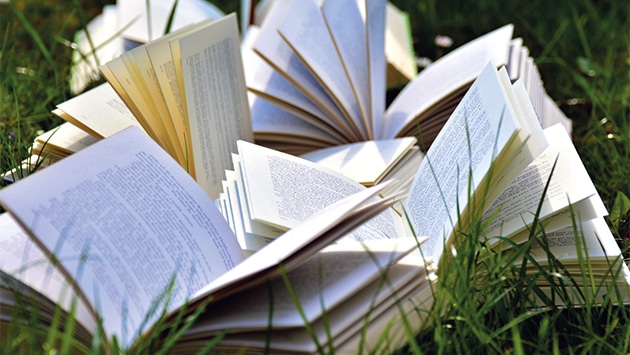Baran Anatol Chronas, the Turk, the Greek, the son of guest workers, and Cla, actually Nikolaus, the teacher from Graubünden, take a liking to each other. "When they met, back in that winter in Istanbul, Cla was writing about Nicholas of Cusa, Cusanus. The speculative polymath from the Moselle had accompanied the Byzantine emperor and the patriarch on galleys from Constantinople to Italy in the winter of 1437/38. First to Venice, then to Ferrara for a council at which the Eastern Church and the Western Church were to reunite. What had they been arguing about? He still did not understand: Filioque: and from the Son! Did the Holy Spirit come from God the Father or also from the Son? And Cla had also explained to him the idea of coincidentia oppositorum. He had liked that. If God was all-powerful, then he had to be able to be everything."
But now Baran has met Alva, Cla's lover, and her daughter Florinda, and a dramatic turn in the lives of the four of them is looming. On the train ride from Chur to Istanbul, Baran's life so far passes him by like the train stations. Where will he get off?
This is the subject of Angelika Overath's new novel "Unschärfen der Liebe", the second volume of her Istanbul trilogy, from which the author will read.
Angelika Overath was born in Karlsruhe in 1957. She works as a reporter, literary critic and lecturer and has written the novels "Nahe Tage", "Flughafenfische", "Sie dreht sich um" and "Ein Winter in Istanbul". "Airport Fishes" was nominated for the German and Swiss Book Prizes, among others. She was awarded the Egon Erwin Kisch Prize for her literary reportages. She lives in Sent, Graubünden, and runs a writing school together with her husband, the Germanist Manfred Koch. I guess it always comes down to being precise. To look as closely as possible, to listen, to be attentive. And to bear witness to that.
Programme of the event:
Baran Anatol Chronas, the Turk, the Greek, the son of migrant workers and Cla, actually Nicholas, the teacher from Graubünden, take a liking to each other. "When they met, that winter in Istanbul, Cla was writing about Nicholas of Cusa, Cusanus. The speculative polymath from the Moselle had accompanied the Byzantine emperor and the patriarch on galleys from Constantinople to Italy in the winter of 1437/38. First to Venice, then to Ferrara for a council at which the Eastern Church and the Western Church were to reunite. What were they arguing about? He still didn't understand: Filioque: and from the Son! Did the Holy Spirit come from God the Father or also from the Son? And Cla had also explained the idea of coincidentia oppositorum to him. He had liked that. If God was omnipotent, then he had to be able to be everything."
But now Baran has met Alva, Cla's lover, and her daughter Florinda, and a dramatic change in the lives of the four of them is on the horizon. On the train journey from Chur to Istanbul, Baran's previous life passes him by like railway stations. Where will he get off?
This is the subject of Angelika Overath's new novel "Unschärfen der Liebe", the second volume of her Istanbul trilogy, from which the author will be reading.
Angelika Overath was born in Karlsruhe in 1957. She works as a reporter, literary critic and lecturer and has written the novels "Nahe Tage", "Flughafenfische", "Sie dreht sich um" and "Ein Winter in Istanbul". "Flughafenfische" was nominated for the German and Swiss Book Prize, among others. She was honoured with the Egon Erwin Kisch Prize for her literary reportages. She lives in Sent, Graubünden and runs a writing school together with her husband, the Germanist Manfred Koch. It is always important to be precise. To look as closely as possible, to listen, to be attentive. And, yes, to bear witness to this.
